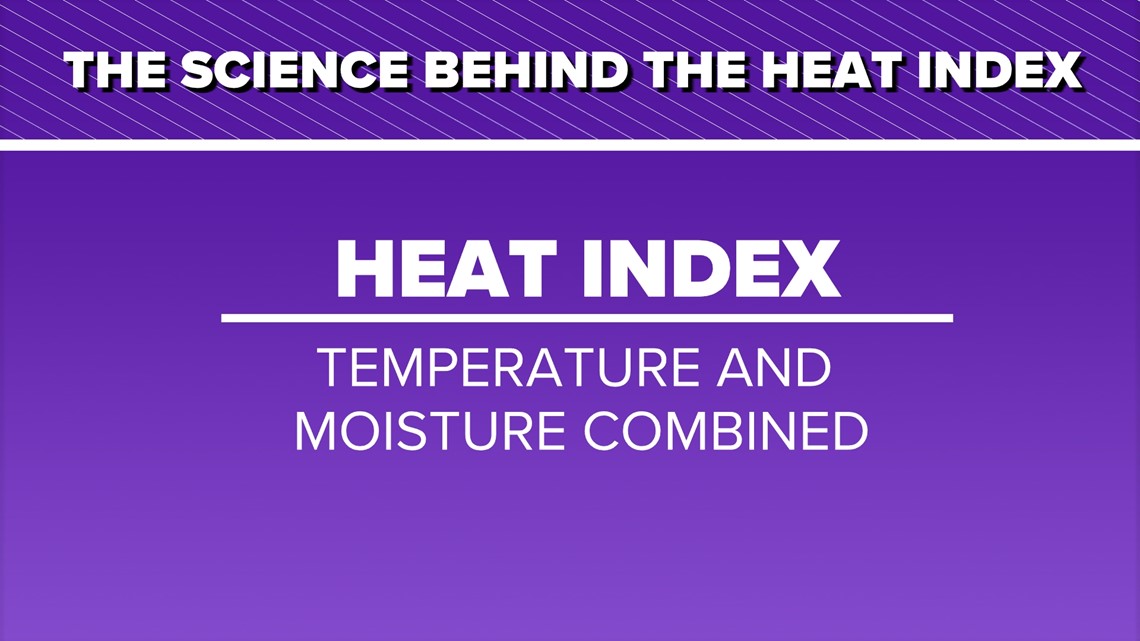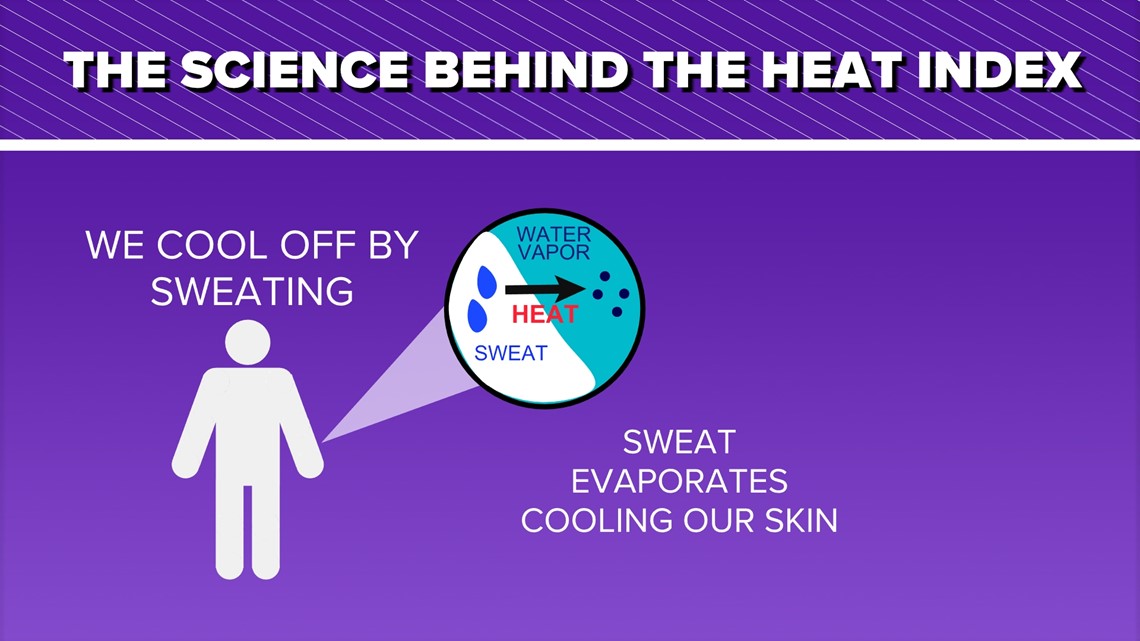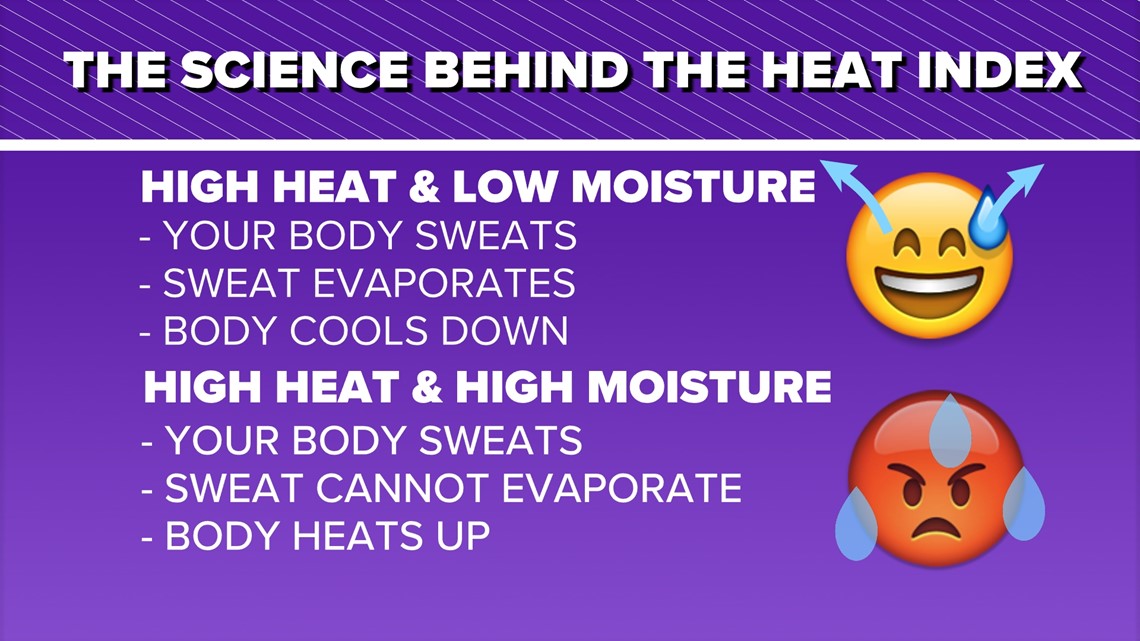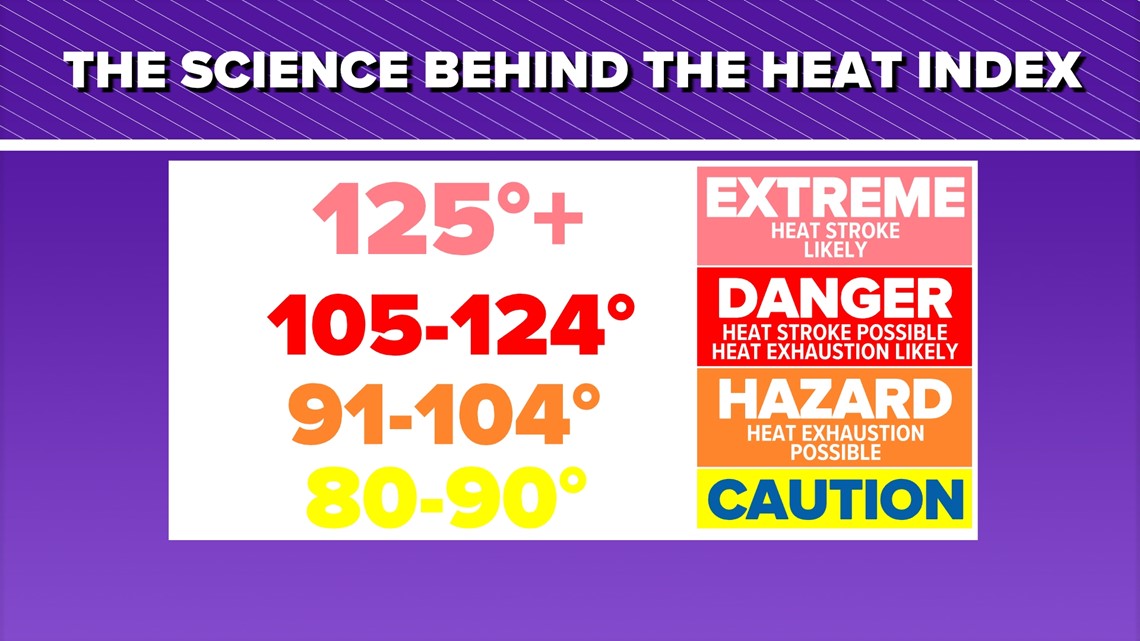COLUMBIA, S.C. — Temperatures are running high this week. We’ve already broken records, and more are in jeopardy over the next 2 weeks. Temperatures will be hot, but the air can feel even hotter especially during this stretch ahead.
While listening to the forecast you might hear us mention temperatures in the 90s but Feels Like the 100s? Something we say quite often in the summer. How can the air feel hotter than it actually is? That’s where the science of the heat index steps in.
Temperature is a measurement of how hot or cool air is but during the summer heat, we often talk about a “feels like” temperature or what we call the heat index. This is a value we get through some pretty complex math, but it all boils down to how much moisture and heat we have in the atmosphere.


Why are these two things important?
Our bodies cool off by sweating. Sweat is released and evaporates into water vapor and in the process cools us down.


This works really well when the air is dry around us. Our bodies can effectively remove heat and lower our internal temperature.
When there is more moisture, our sweat evaporates much slower which makes cooling a much more difficult task.


We quantify this difficulty to cool by how dangerous the conditions are. While a heat index of 91 to 104 can potentially cause issues like heat exhaustion, As soon as the heat index rises over 105 the weather itself can become dangerous for those outside.
That reason right there is why we tell you about the heat index during the hottest of months.



